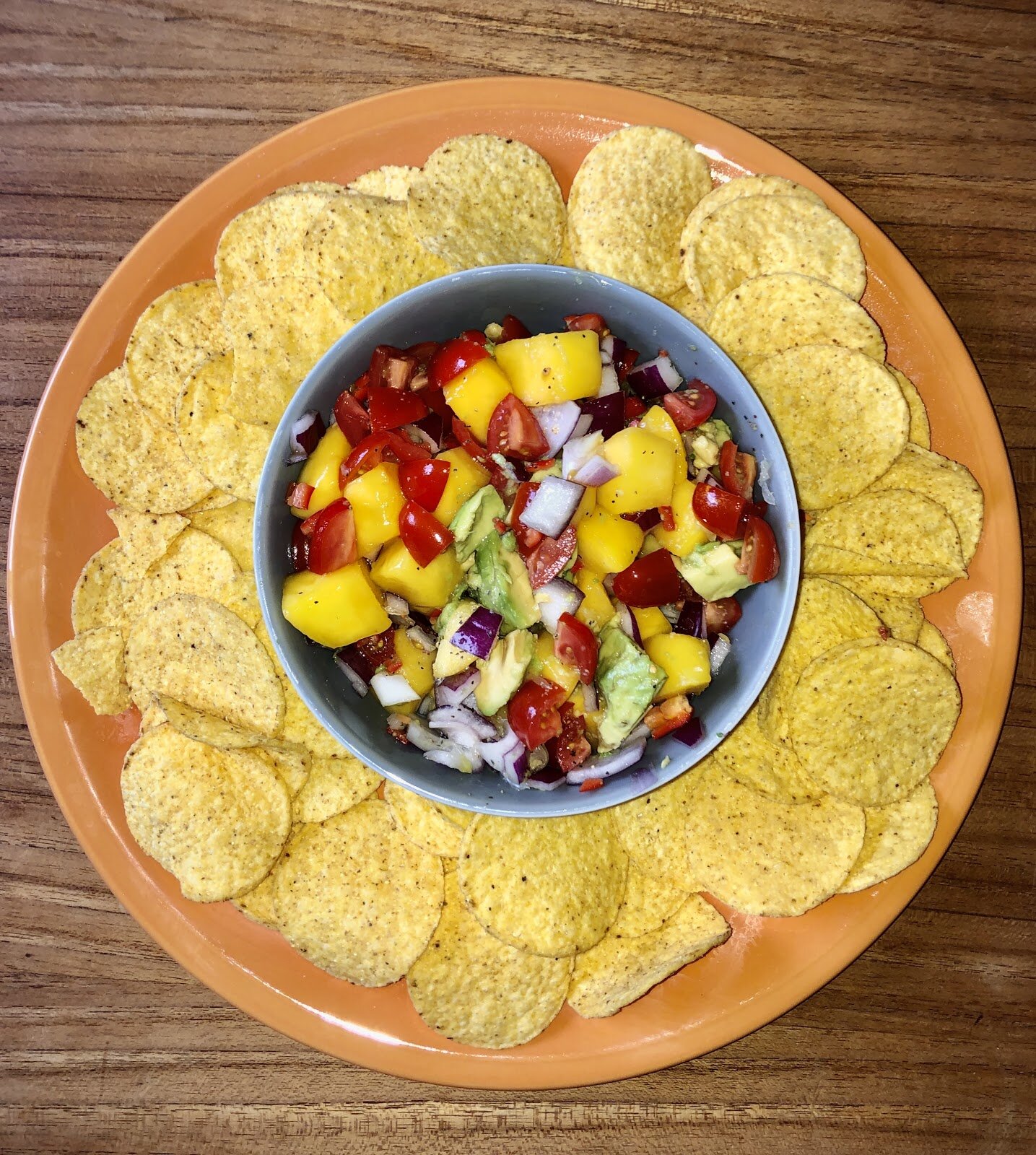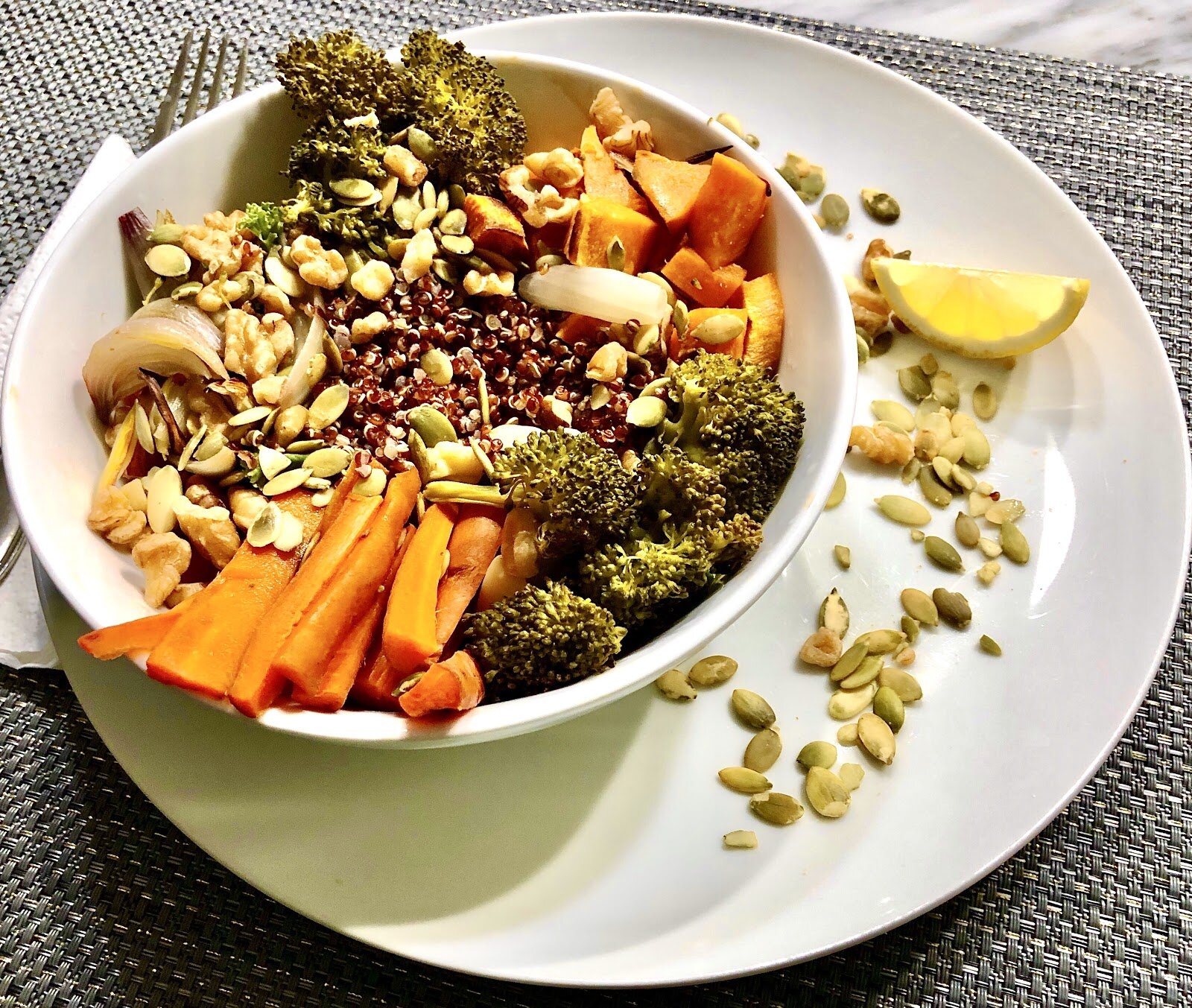Vitamin A: Anti-Inflammatory Benefits and 3 Vegan Recipes to Boost Intake
By: Charlotte Myers
When discussing the prevention and management of any chronic disease, it’s important to talk about diet because it is one of the few things we have a sense of control over (although, some of us may have more ability to control this than others). Being mindful of what we eat could yield beneficial outcomes for those of us at risk of endometriosis as well as potentially ease some symptoms for those who already live with the condition.
Food for Fight
It may not come as news that eating well is good for us, but what does that really mean? It can be overwhelming to navigate how to make the best food choices that make us feel good while also supporting our health.
To help combat that confusion, I will be releasing a series of blogs about how to use food in the fight against endometriosis and chronic disease. I’ll also share some of my self-made, easy-to-follow recipes that promote these foods.
In this very first blog of the series, let’s take a look at how vitamin A is important to those with endometriosis.
Eat Your Carrots So You Can See… Vitamin A’s Additional Benefits
Food can arm us and heal us, but even with a well-balanced and nutrient-dense diet, it can be difficult to get the right concentration of certain vitamins. Careful consideration of vitamin intake is particularly important for those who live with endometriosis. People who have endometriosis are reported to have a lower intake of vitamin A than those who do not have it.
Pro-vitamin A nutrients are found in fruits and vegetables that contain carotenoids. These are plant chemicals that help to absorb light energy to be used in photosynthesis and they contain the pigments in plants that make certain foods vibrant red, yellow, and orange colors.
Carotenoids are essential to human growth and development, and they are most commonly known for their role in supporting our ability to see. However, foods with carotenoids also have plenty of protective health benefits. In the body, some carotenoids get converted to vitamin A which is then used for various health-promoting functions. Among these, it provides antioxidants that help the body fight cancer, has anti-inflammatory properties, and boosts the immune system.
Research on endometriosis and vitamin intake supports greater fruit consumption among people with endometriosis to increase vitamin A levels. People with endometriosis may be able to manage their pain to some extent with vitamin intake. A controlled increase in vitamin intake may provide relief, and micronutrients could play a role in the lesions of endometriosis patients. Research supports that consuming fruits helps to lessen the burden of endometriosis, and citrus fruits are particularly associated with a lower risk of endometriosis.
The optimal daily intake of vitamin A for adult women is 0.6mg and 0.7mg for men, and the body stores any excess vitamin A that is not needed for immediate function. As fruits and vegetables have high levels of pro vitamin A, those who maintain a balanced diet that is abundant in fruits and vegetables are not likely to experience a deficiency in vitamin A.
Vitamin A can be toxic when consumed in excess. This is not common but should be considered when taking supplements.
Plant-based foods are the best sources of carotenoids, as animal-based foods are unable to construct them on their own. Foods that are rich in vitamin A are often easy to spot thanks to their vibrant colors. Fruits and vegetables that are orange and yellow often contain pro-vitamin A carotenoids, though not all food sources that are rich in vitamin A are these colors.
Plant foods that are great sources of vitamin-A-manufacturing carotenoids include:
Apricots
Bell peppers
Broccoli
Cantaloupe
Carrots
Collard greens
Grapefruit
Kale
Mangos
Onions
Oranges
Papaya
Peas
Plums
Pumpkin
Spinach
Squash
Sweet potatoes
Tomatoes
Watermelon
Carotenoids are fat-soluble, meaning they should be consumed in combination with fat so that the body can absorb them. Great sources of healthy plant fats include nuts, seeds, and avocados.
Oils are also a source of plant fat; however, their health-promoting qualities are weakened through the level of processing that goes into making them. When oils are processed, they are stripped of their natural fibers, minerals, and nutrients. Therefore, whole food choices are naturally the better health-promoting option.
Let’s Get Cookin’
Sometimes, it's difficult to make the connection between the produce section and a full meal on your plate. I often find myself thinking “Wow, I bought so many great things at the store today.”, but then when it’s time to cook I think “How do I combine all of these things to make something tasty?”
If you need some inspiration to get started in the kitchen, here are three recipes that I have created to turn these vitamin-A-rich food sources into something vibrant and delicious. Enjoy!
Snack - Mango Salsa Dip
Serves 3-4
Ingredients
½ cup diced mango (if frozen, allow time to defrost before starting)
1 chili pepper, diced
½ red onion, diced
½ tomato of choice, diced
1 avocado, pitted and mashed
Juice from ½ lime
Pinch of salt, pepper, and garlic powder to taste
Directions
Combine all ingredients in a bowl, mix so that ingredients are spread evenly throughout the dip. If you prefer a creamy texture, blend all ingredients in a food processor.
Enjoy immediately with carrot sticks, tortilla chips, pretzels, crackers, or another preferred salty vehicle to your belly.
Meal - Roasted Veg and Quinoa Bowl
Serves 2
Ingredients
1 cup chopped broccoli
1 medium sweet potato, peeled if preferred and cut into small squares
1 cup carrots, cut into thin strips
1 small red onion or 2 shallots, sliced
3-4 garlic cloves with skins on
2 cups kale or spinach
1 cup cooked quinoa of choice
¼ loosely chopped walnuts
¼ cup pumpkin seeds
Salt to taste
Optional toppers: lemon juice, brown rice miso, or coconut aminos
Directions
Preheat the oven to 400°F or 205°C.
Line a baking tray with parchment paper. Spread out the chopped broccoli, sweet potato, carrots, garlic cloves (keep the skins on), and onion/shallots on the tray. Sprinkle the salt gently over the vegetables, and cover the tray with foil. Place in the oven and cook for about 20 minutes, then remove foil and return to the oven for about 10 extra minutes to crisp.
Once roasted, dice the garlic cloves.
Mix roasted veggies, spinach/kale, garlic, quinoa, walnuts, and pumpkin seeds into a serving bowl. Top with the juice of a lemon and any other seasoning of choice.
Sweet - Mango or Peach Soft Serve
Serves 1
Ingredients
½ cup frozen mango or peach, chopped
1 frozen ripe banana, cut into 3-6 pieces
1 tablespoon plant milk of choice
Optional toppers: cinnamon, hemp seeds, chia seeds, walnut or almond shavings
Directions
Add the frozen mango or peach and banana to a food processor and blend until combined. Add the plant milk as needed until a creamy texture is formed. You may need to add more or less of the milk, depending on preferred texture and how frozen the fruit is. Top as you’d like, and enjoy immediately.
I would love to hear what you think about this blog series, suggestions for nutrition aspects to explore, or recipe tips! Please reach out to us at brittany@endo-metrix.com with questions and suggestions.
Sources





